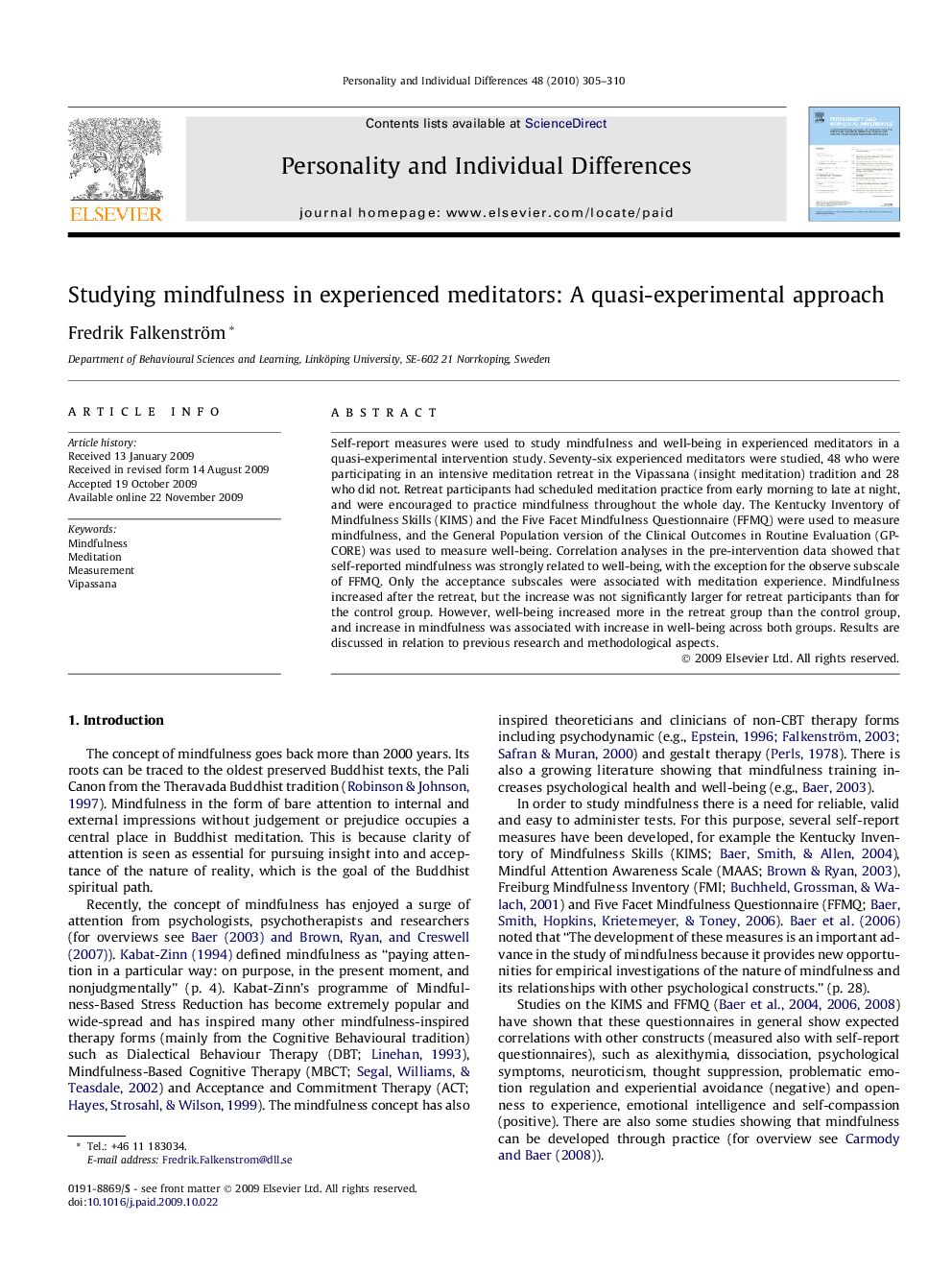| Article ID | Journal | Published Year | Pages | File Type |
|---|---|---|---|---|
| 892210 | Personality and Individual Differences | 2010 | 6 Pages |
Self-report measures were used to study mindfulness and well-being in experienced meditators in a quasi-experimental intervention study. Seventy-six experienced meditators were studied, 48 who were participating in an intensive meditation retreat in the Vipassana (insight meditation) tradition and 28 who did not. Retreat participants had scheduled meditation practice from early morning to late at night, and were encouraged to practice mindfulness throughout the whole day. The Kentucky Inventory of Mindfulness Skills (KIMS) and the Five Facet Mindfulness Questionnaire (FFMQ) were used to measure mindfulness, and the General Population version of the Clinical Outcomes in Routine Evaluation (GP-CORE) was used to measure well-being. Correlation analyses in the pre-intervention data showed that self-reported mindfulness was strongly related to well-being, with the exception for the observe subscale of FFMQ. Only the acceptance subscales were associated with meditation experience. Mindfulness increased after the retreat, but the increase was not significantly larger for retreat participants than for the control group. However, well-being increased more in the retreat group than the control group, and increase in mindfulness was associated with increase in well-being across both groups. Results are discussed in relation to previous research and methodological aspects.
